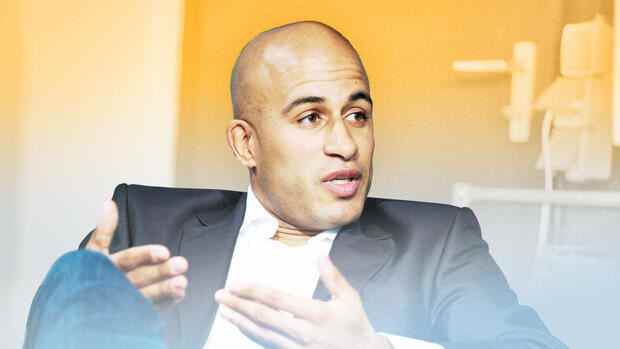“Resilience does not have to mean that I always avoid stress”
(Photo: Till Caspar Juon, mediabricks)
Dusseldorf For many, the last days of the year are really stressful again: At work, the final spurt is announced, the new corona variant creates uncertainty, home office fatigue is rampant, gastrointestinal tract is rampant in kindergarten. And suddenly it’s Christmas and everyone should be relaxed.
Karim Fathi knows how this works. The 42-year-old is a consultant, lecturer, coach, author, conflict and resilience researcher. As a self-proclaimed “enthusiastic problem solver”, he offers training and advice for companies, but also for organizations such as refugee homes.
It is about how to deal better with stress (Fathi: “Resilience does not have to mean that I always avoid stress”) and developing your own personal resilience strategy. Fathi himself learned early on not to be disturbed. His father is from Morocco and he was exposed to the stress of exclusion and discrimination at school.
The bad news: Resilience or emotional resistance is an ability that is around 50 percent innate. The good news: Anyone can learn the other 50 percent, and it’s never too late. Even if, according to Fathi, 100 percent would go “towards enlightenment” a la Dalai Lama.
Top jobs of the day
Find the best jobs now and
be notified by email.
In the fourth episode of Handelsblatt Rethink Work, we talk to the researcher about which anti-stress techniques and tools are available, why the job is so much more stressful for us today and how best to deal with conflicts, including in a team. And he explains why feelgood management is not chichi and what pushes it to its limits.
More: Episode 3 by Handelsblatt Rethink Work: “I concentrated on the five percent who wanted to.”
